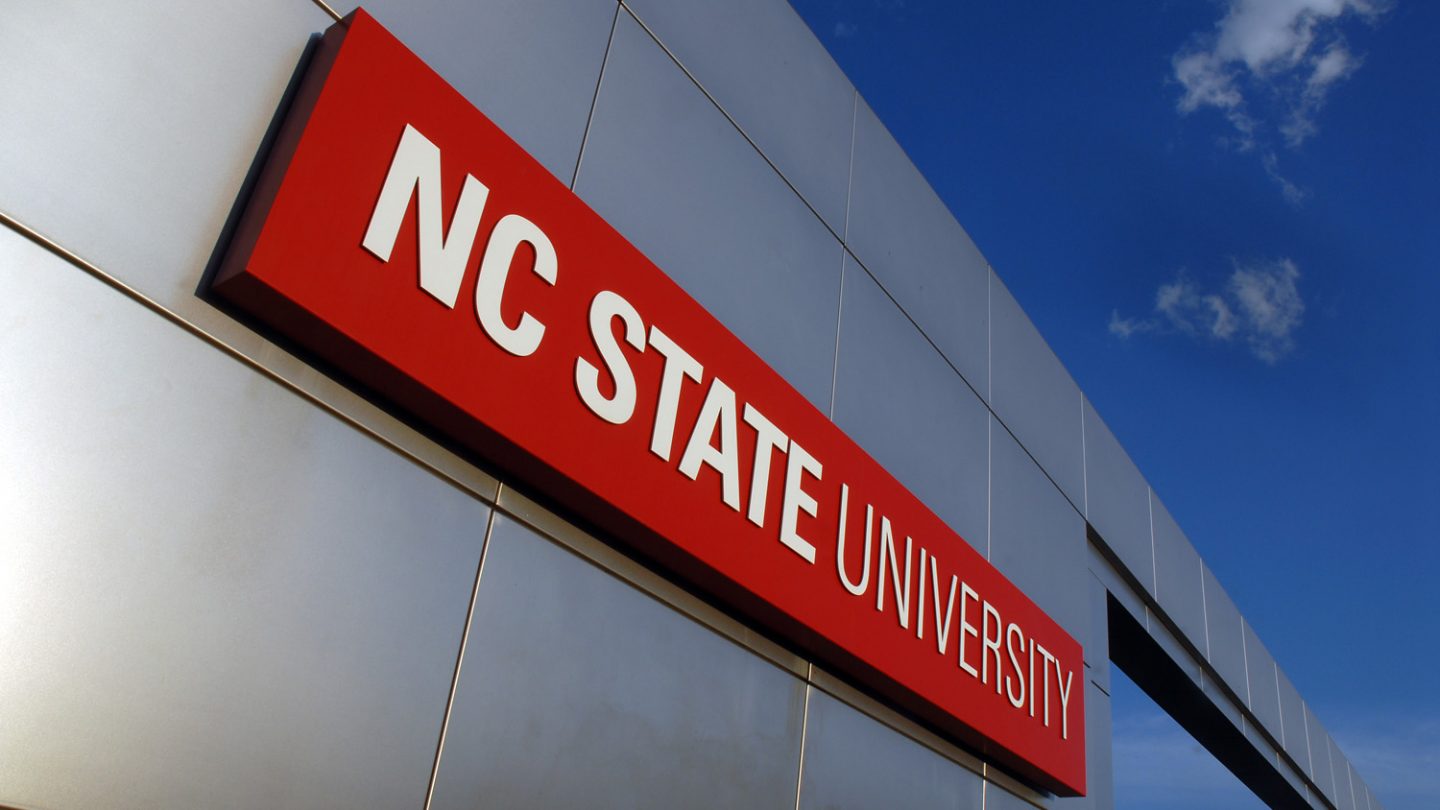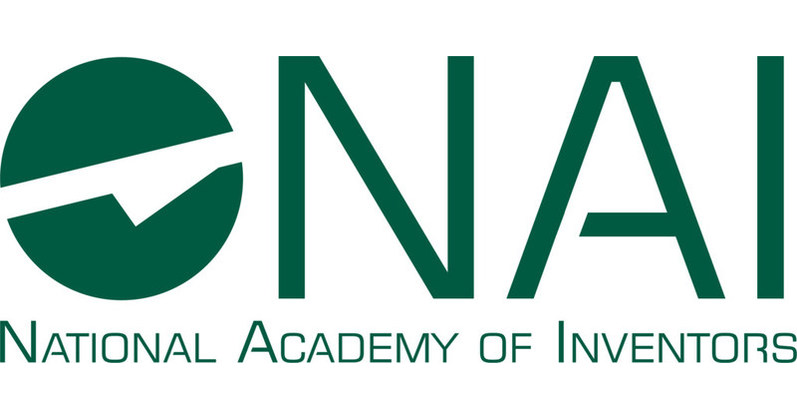NC State Breaking Down Barriers to Business Innovation

Launching and running a startup company requires expertise in a dizzying range of areas: marketing, business law, accounting, computer networking, human resources, operations and sales, to name a few.
No wonder every entrepreneur hits a seemingly insurmountable wall at some point — usually quite early in the undertaking. It’s to be expected considering the complexity of transforming an innovative idea into a prosperous business enterprise. And if you already have a day job — say you’re a university faculty member with research and classroom responsibilities — then that wall may seem especially high.
Breaking down the barriers to business innovation has become a specialty at NC State’s Office of Technology Commercialization and New Ventures, which just completed its most successful year ever. OTCNV collaborated with NC State faculty to launch 12 startup companies, execute 164 commercialization agreements, issue 65 patents and generate $3.8 million in licensing revenue in 2016.
How did they do it? By offering a diverse array of hands-on programs designed to give startups the support they need at each stage of the entrepreneurial journey, from the earliest brainstorming sessions to a successful startup launch and beyond.
“There’s never been a better time to launch a startup company at NC State,” says Kelly Sexton, assistant vice chancellor for technology commercialization and new ventures. Her office has helped to launch 46 research-based startups in just the last five years, but they’re not resting on their laurels; Sexton and her team have continued to create new resources to support NC State startups.
Kelly Sexton, Assistant Vice Chancellor for Technology Commercialization and New Ventures
One of the newest is the Investor-Ready Business Plan course, offered in conjunction with faculty in the Poole College of Management. The semester-long course, launched in January 2016, guides first-time entrepreneurs through the process of creating a business plan that will draw investors. Participants learn about voice-of-customer feedback, develop a value proposition for their business and create a business model based on lean startup methodologies. Any startup team working to form a company that will commercialize NC State research discoveries can take the course at no charge.
Once a startup team has a viable business plan in hand, they can benefit from the guidance of a seasoned executive who knows what it takes to start and run a successful company. That’s where OTCNV’s Executive in Residence program comes in.
“We’ve realized there are a lot alumni and friends of the university who want to give back in a way that supports entrepreneurialism and startup activity,” Sexton explains. “That’s why we launched the Executive in Residence program — to bring in commercialization experts who want to serve as advisers to emerging NC State startups.”
The Executive in Residence program started in 2016 with five executives serving as mentors to early-stage startup teams. The executives listen to the teams’ pitches, give feedback and ideally find a team they mesh with and volunteer time to advise them. “We found that the feedback and support the executives gave was incredibly valuable,” Sexton says. “We plan to greatly expand the program in 2017 to pull in the 50 or more additional executives who have expressed an interest in supporting our mission.”
The Executive in Residence program is also available to faculty inventors who may not be launching a startup but would still like to receive relevant feedback on their inventions from industry professionals.
As a startup team moves closer to launch, they’ll have to address many different types of needs along the way, such as discovering funding opportunities, writing grants, finding and meeting potential investors, and even something as simple — yet crucial — as designing and launching a website. Meeting these assorted needs is the purpose of the PackStart program, a toolkit containing a diverse array of resources.
Raúl Doyle, Business Development Officer, Agile Sciences
“OTCNV was extremely helpful in assisting us with the setup of a website and devoted domain name service,” says Raul Doyle, business development officer with Agile Sciences, an NC State startup developing biofilm-inhibiting technology that fights antibiotic-resistant bacteria in a wide range of settings.
“OTCNV provided us with a dedicated assistant who was in direct contact with us and gave step-by-step instructions for what we needed to do on our end,” Doyle says. “They saved us a lot of time and heartache with the domain service provider and the actual website layout and design. All of this was done free of charge, which is fantastic for a small business. Their service was invaluable.”
When a startup is ready to formally launch and take flight off campus, the leadership team can benefit from mentoring tailored to the initial stages of running a fledgling entrepreneurial business. Many startups in that position seek support from the Council for Entrepreneurial Development in Durham, North Carolina. With more than 4,000 active members and 700 companies represented, CED is the largest and longest-running nonprofit entrepreneurial support organization in the country. In late 2015, OTCNV formalized a strategic partnership with CED that gives NC State startups access to the organization’s Venture Mentoring Service, a pool of more than 70 highly experienced serial entrepreneurs, investors and retired executives who help newly launched startups get their feet under them.
“The way it works is, the VMS mentors get together and hear business pitches from area startup CEOs,” Sexton explains. “If they hear a pitch they like or if it’s in an area they know a lot about, they raise their hand and say they’re willing to volunteer their time as a mentor to that startup. We’ve now sent nine of our startups to participate in the VMS program.”
One of those startups was People-First Tourism, a company that helps travelers get off the beaten path by connecting directly with people in travel destinations who can facilitate unique tourism experiences.
“In fall 2016 OTCNV facilitated the process for us to get in front of the VMS to make a business pitch,” says Duarte B. Morais, CEO of People-First Tourism and associate professor of parks, recreation and tourism management at NC State. “After our pitch, three business mentors volunteered to support us. We share internal documents with them, meet monthly to discuss strategy and get their input on grants and business-pitch proposals. We talk about short-term steps as well as long-term strategies. We really feel that our CED mentors’ immense experience in how to grow small companies and attract capital will accelerate our trajectory.”
So let’s say your startup began with a great idea, developed a solid business plan, honed its pitch, created a good-looking website that works, launched successfully, and started generating revenue. What comes next?
“The next stage is investment,” Sexton says. “Startup companies need seed capital, that first $300,000 to $3 million that it takes to scale their business and grow. In the past, this is where venture capitalists would have come in, but since the last recession they’re moving much further downstream, to invest in later-stage companies.” The resulting gap in startup investment is increasingly being filled by angel investors — individuals who invest in startups — and that gives NC State a unique opportunity.
“We graduate thousands of students every year, some of whom go on to become successful entrepreneurs and angel investors,” Sexton explains. NC State has as many as 30,000 alumni who are angel investors, she says. That’s why OTCNV led a collaborative effort to create the Wolfpack Investor Network, a mechanism that connects NC State alumni investors with promising NC State-affiliated startup companies to facilitate angel investments. “This is a way for our alumni to invest in the Wolfpack’s best and brightest,” she says.
Membership in WIN is open to NC State alumni who are accredited investors as defined by the U.S. Securities and Exchange Commission. Members pay an annual fee to join, which offsets the costs of running the program, but there’s no minimum investment requirement or any obligation to ever invest in a startup. Members get access to a systematic process for reviewing promising NC State startups as investment opportunities. The managing director of WIN anticipates reviewing up to 120 startups per year, winnowing those down to eight to 10 companies that will be presented to members for possible investment.
“If you’re one of the companies chosen to be presented to the WIN membership, the WIN managing director arranges pitch sessions where your CEO pitches to the members,” Sexton says. WIN also utilizes multidisciplinary student teams, mentored and managed by faculty in the Poole College of Management, to do due diligence on the presenting startups, such as reviewing their financials and business plans. The due-diligence information is presented in an online “deal room” where members can review it as they decide whether to invest in a company.
“We had hoped to have 35 WIN members by the end of year 1; we reached that goal three months after we launched,” Sexton says. “We had also hoped to facilitate investment in at least one startup by the end of the calendar year, and we achieved that too.”
Successes like these are making a difference. OTCNV’s programs and activities have established NC State as a leader in moving ideas from the lab to the marketplace. They’ve helped the university’s startups attracted more than $1.6 billion in venture-capital investment to date, making NC State a national leader for the commercialization of research.
Photonics, CRISPR Researchers Honored by NC State
NC State Chancellor Randy Woodson honored two pioneering researchers at the university’s 27th Celebration of Innovation and Entrepreneurship last October. Engineering professor Michael Escuti was named Innovator of the Year, and food scientist Rodolphe Barrangou received the Dr. John S. Risley Entrepreneur of the Year award.
Chancellor Randy Woodson, center, joins Rodolphe Barrangou, left, and Michael Escuti at NC State’s 27th Celebration of Innovation and Entrepreneurship.
Escuti is a leading liquid crystal and photonics expert globally recognized for the development of polarization gratings and geometric phase holograms. He has received the Presidential Early Career Award for Scientists and Engineers and the Alcoa Foundation Engineering Research Achievement Award. Escuti is a named inventor on 47 issued patents. A number of his technologies have been successfully commercialized by ImagineOptix, an NC State startup developing advanced optics components for telecommunications and consumer electronics. Additionally, Escuti’s technology is currently installed in two of the world’s largest telescopes, enabling high-contrast direct imaging and spectral characterization of exo-solar planets.
Barrangou returned to NC State in 2013, following a prolific 10-year career providing leadership for global innovations at Danisco and DuPont. He is widely recognized for paving the way for scientific breakthroughs involving CRISPR-Cas systems, and his CRISPR lab has published more than 100 journal articles on its research. Barrangou has received numerous awards, including the Warren Alpert Prize from the Harvard Medical School and the Canada International Gairdner Award. He also received funding from the Chancellor’s Innovation Fund in 2015.
Barrangou serves in leadership roles in three CRISPR startup companies:
- Chairman of the board of directors for Caribou Biosciences, which is valued at more than $100 million
- Co-founder of Intellia Therapeutics, which issued an IPO within two years of launch and now has a valuation approaching $1 billion
- Co-founder and chairman of the scientific advisory board for Locus Biosciences, an NC State startup that has successfully raised $1.5 million in seed funding
By Brent Winter
- Categories:


